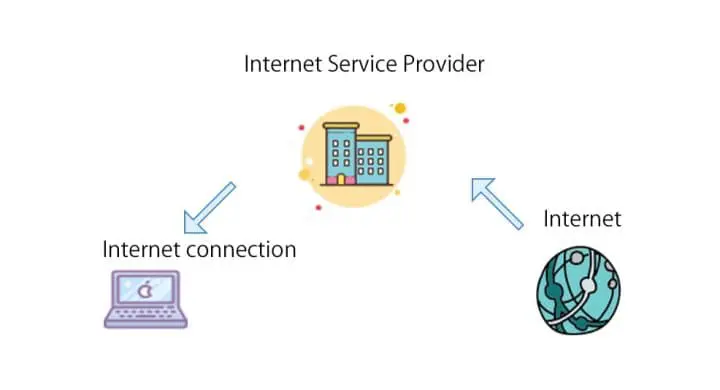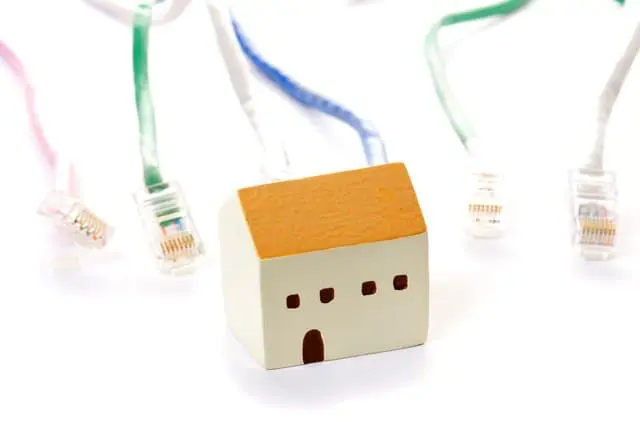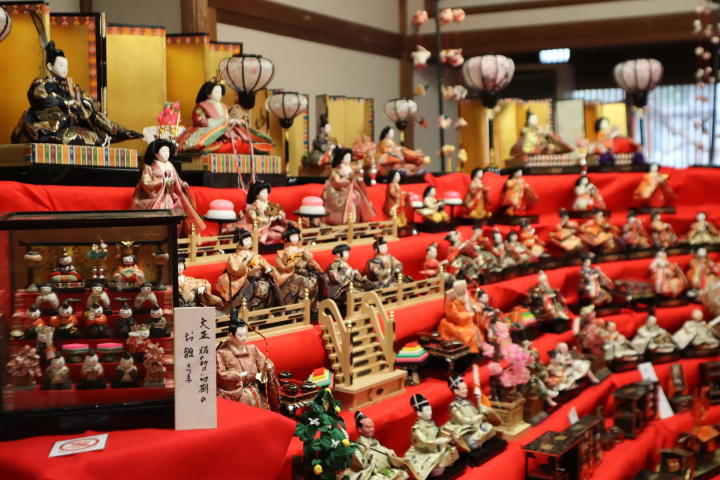Internet Services in Japan: Guide and Price Comparison

Comparing Pocket Wi-Fi vs. Fiber-optic internet in Japan. Find the best internet services for long-term foreign residents, including costs and English support.
Internet Services in Japan
The internet has become indispensable in our society. To stay connected in Japan, users must apply to a telecommunication company. However, some people may have neglected to do so because of the paperwork.
This article introduces how to apply for internet use in Japan, the selection of companies, and things to watch out for when signing a contract.
Those worrying about applying in Japanese should take a look at GTN Mobile (GTN Hikari), which offers fiber-optic service and customer support in seven languages, or Sakura Fiber Internet.
Table of Contents
Service Types
There are mainly two types of services in Japan: wired (fixed connection) and wireless. The details are as follows:
| Type | Pros | Cons |
| Wired (Fixed Connection) | Offers high-speed connection and handles a large amount of data. A Wi-Fi connection is available via a router. |
Can be used only at home. |
| Wireless (Wi-Fi) | A portable Wi-Fi enables internet connection outside. | Connection speed may be unstable, and the data amount will be limited. There are security risks compared to a wired type. |
Wired
A fiber-optic cable is used for a wired-type connection.
It is now a major component, supporting high-speed connection and handling a huge amount of data communication.
There used to be another service called ADSL (Asymmetric Digital Subscriber Line). Although the basic charge was inexpensive, this service was discontinued due to slow speed.
Wireless
A portable Wi-Fi router supports wireless connection, regardless of where the user is.
While it may be ideal when traveling, those residing in Japan should consider a fiber-optic cable, which offers high-speed, stable communication.
Details of applying for a wired service are listed below.
Items to Check Before Signing
In Japan, users sign contracts with telecommunication companies and providers.

Icons by icons8
The former companies, such as NTT East/West, KDDI, and local cable televisions, maintain the cable system.
The latter is short for internet service provider and is also known as a carrier or ISP. They will be connecting the supplied cables to the internet. While ISP will also handle the cable in other countries, separate contracts will be required in Japan.
Currently, there are set packages, or two contracts rolled into one. The user only has to make payments to a single company. Therefore, those who are having a hard time making a decision should choose this type.
Signing Contracts

Photo by Pixta
To apply for a fiber-optic cable, go to the official website of telecommunication companies. You must input the required information, such as residence (apartment or a detached house), address, and name in Japanese.
| Major Telecommunication Companies/URL | |
| GTN Hikari (English and other languages) | https://www.gtn-mobile.com/s/home-internet?language=en_US&referrerId=30372 |
| Sakura Fiber Internet (English) | https://www.sakuramobile.jp/ |
| Asahi Net (English) | https://asahi-net.jp/en/ |
| NTT East (English) | https://flets.com/english/ |
| NTT West (English) | https://www.ntt-west.co.jp/english/ |
| au Hikari | https://www.au.com/internet/ (Japanese) |
| SoftBank Hikari | https://www.softbank.jp/internet/ (Japanese) |
| docomo Hikari | https://www.docomo.ne.jp/internet/hikari/ (Japanese) |
Cautionary Points

Photo by Pixta
Additional work to install the cable may be required depending on your residential conditions. In the case of an apartment, if the previous tenant was already using a fiber-optic cable, the new tenant can connect to the internet instantly by adjusting the router.
On the other hand, a newly built, detached house will need some work. While the cost will vary according to the ISP, it should cost from 15,000 to 30,000 yen for an apartment and from 20,000 to 40,000 yen for a house. There are special campaigns with zero costs, so keep an eye out.
Also, be sure to check the schedule. Usually, it takes about 2 to 4 weeks to install the cable after submitting your application.
Using a portable router until the cable is installed might be a good idea.
Comparison of Companies and Fees

Photo by Pixta
The following is a list of set packages, including their features alongside the pros and cons. Do take a look and use it as a guide.
The fees vary according to the content and contract period. Some companies require a handling fee and cancellation fee.
Those worried about signing a contract in Japanese should try GTN Hikari (Japanese), which offers customer support in seven languages, including English and Chinese.
GTN Hikari
| GTN Hikari | |
| Pro | Offers multi-lingual customer support. |
| Con | The connection speed may be slow at times. |
| Monthly Fee | Apartment: 4,180 yen/Detached House: 5,720 yen (both 2-year contracts) |
GTN Hikari uses the same cable network as Softbank Hikari (introduced later in this article). They offer multi-lingual support in seven languages (Japanese/English/Chinese/Korean/Vietnamese/Nepali/Indonesian), and users can file an application on the GTN website using the language of their choice.
Contract signing, installments, and cancellations can all be done using a certain language. GTN will handle any problems that may occur.
There is currently a discount on installment fees, so please inquire if you're interested.
GTN Hikari: Inquiries/Registration (Japanese)
Sakura Fiber Internet
| Sakura Fiber Internet | |
| Pro | Offers English support, and there are no fixed contract periods. |
| Con | The fees are comparatively high. |
| Monthly Fee | Apartment/Detached House: 7,128 yen |
Sakura Fiber Internet provides services to foreign nationals residing in Japan, offering the exact specifications as Flet's Hikari (described later in this article). They support customers who are not fluent in Japanese and will work as a translator upon request on the day of the cable installment.
Users can also ask the company to send Japanese staff to negotiate with the landlord about installation in advance.
While the normal contract period is 2 to 3 years in Japan, there are no fixed periods at Sakura. Therefore, customers can enjoy short-term services. (The minimum is 3 months.) The payment can be made in cash or by a credit/debit card.
There is currently a discount on handling fees from the normal price of 5,500 yen to 110 yen, so be sure to make an inquiry.
Sakura Fiber Internet: Inquiries/Registration
Asahi Net
| Asahi Net | |
| Pro | Offers support in English. IPv6 is also available. |
| Con | The fees may go up after the current campaign ends. |
| Monthly Fee | Apartment: 2,750 yen and up/Detached House: 5,720 yen and up |
Asahi Net started its service in 1990.
They offer set packages such as Asahi Net FTTH with Flet's (in cooperation with Flet's Hikari) and Asahi Net docomo Hikari (in cooperation with docomo Hikari), along with an ISP-only service.
Customer support in English is also available, perfect for those signing a contract for the first time in Japan.
Their system is based on IPv6, which makes the internet connection much easier than the former version.
Asahi Net: Inquiries/Registration
NURO Hikari
| NURO Hikari | |
| Pro | Offers a high-speed connection. |
| Con | The coverage is limited to certain areas, and the fees are relatively expensive. |
| Monthly Fee | Apartment: 2,530 yen and up/Detached House: 5,217 yen and up |
NURO Hikari is known for its super-quickness, boasting the fastest communication speed in Japan. The company employs G-PON, a telecommunications standard that allows a maximum download speed of 2 Gbps.
An average fiber-optic download speed is 1 Gbps, which is twice as fast. However, their coverage is limited, and the fees are relatively costly. As of June 2024, NURO is available in the following areas.
Kanto: Tokyo/Kanagawa/Saitama/Chiba/Ibaraki/Tochigi/Gunma
Kansai: Osaka/Hyogo/Kyoto/Shiga/Nara
Tokai: Aichi/Shizuoka/Gifu/Mie
Chugoku: Horishima/Okayama
Kyushu: Fukuoka/Saga
Hokkaido: Ishikari City/Eniwa City/Ebetsu City/Otaru City/Sapporo City/Chitose City
Tohoku*: Miyagi/Fukushima/Yamagata
*: Only a 10 G option is available in the Tohoku area.
Even in the prefectures mentioned above, there are certain municipalities where NURO is unavailable. For further information, please check this Japanese page on their official website.
NURO Hikari: Infomation/Registration (Japanese)
Softbank Hikari
| Softbank Hikari | |
| Pro | Softbank mobile phone users will receive a volume discount. |
| Con | The connection speed may be slow at times. |
| Monthly Fee | Apartment: 4,180 yen/Detached House: 5,720 yen (both 2-year contracts) SoftBank Air: 5,907 yen for both apartment and house, without discounts. |
Softbank Hikari is a fiber optic service managed by the Softbank Group, a major telecommunications firm in Japan. Yahoo! BB will be the ISP, using the NTT East/West cables. This is a set package with a single contract.
There is a volume discount for Softbank mobile phone users and their families. By switching the ISP and mobile carrier to Softbank, each member will receive a maximum discount of 2,310 yen per month.
On the other hand, the monthly fee may rise due to various optional menus (which can be canceled later), or the speed may become slow at certain times.
Softbank also offers SoftBank Air (Japanese), a router, which can be used without any cable installment. It is perfect for those who want to use the internet without waiting.
SoftBank Air: Information/Registration (Japanese)
au Hikari
| au Hikari | |
| Pro | au smartphone users will receive a volume discount. |
| Con | Cancellation fee may be required in some cases. |
| Monthly Fee | Apartment: 3,740 yen/Detached House: 5,610 yen and up (without discounts) |
KDDI, another prominent telecommunications company, manages au Hikari using their own cables or NTT East/West. The maximum download speed is 1 Gbps.
There is a package for detached houses in limited areas, with a maximum speed of 5 to 10 Gbps.
au Hikari users should also switch mobile carriers to au and apply for au Smart Value, a service that offers a maximum monthly discount of 1,100 yen on smartphone costs. This discount applies to 10 devices per household so all family members can use it.
au Hikari: Registration (Japanese)
docomo Hikari
| docomo Hikari | |
| Pro | docomo users can receive a volume discount. |
| Con | The speed depends on the ISP. |
| Monthly Fee | Apartment: 4,400 yen and up/Detached House: 5,720 yen and up (2-year contract) |
docomo Hikari is managed by NTT Docomo, a major Japanese mobile carrier.
Docomo mobile users can receive a volume discount of 1,100 yen per month. This applies to family members as well. Therefore, if you are going to sign with Docomo Hikari, everyone in the family should switch to Docomo.
While the communication speed is said to be slow, that may be due to ISP's performance.
At docomo Hikari, users can choose from 24 ISPs. So, look for a provider with a reputation for a high-speed network.
docomo Hikari: Information/Registration (Japanese)
Biglobe Hikari
| Biglobe Hikari | |
| Pro | The network is stable, regardless of the area, even at nighttime. |
| Con | Cancellation fee may be required in some cases. |
| Monthly Fee | Apartment: 4,378 yen and up/Detached House: 5,478 yen and up (without discounts) |
Biglobe, a major ISP, manages this service. While the fee and speed may be average, it has other unique features.
One of them is IPv6, a technology that stabilizes the network, even at nighttime, when the data traffic increases. The rental fee for a compatible device is 550 yen per month.
Biglobe is in cooperation with au, a major mobile carrier. With an au user in the family, Biglobe Hikari users can choose either au Smart Value (discount on monthly mobile fees) or au volume discount (discount on monthly Biglobe fees). Also, with a broader coverage area, those who could not apply for au Hikari tend to choose Biglobe.
Biglobe Hikari: Registration (Japanese)
Flet's Hikari
| Flet's Hikari | |
| Pro | Offers a wide coverage. |
| Con | Cancellation fee may be required in some cases. |
| Monthly Fee | Apartment: 3,135 yen and up/Detached House: 5,720 yen and up (additional provider fee: 500 yen and up) |
Flet's Hikari is a fiber-optic network provided by NTT. NTT East and West will handle eastern and western Japan residents, respectively. This is not a set package, so users must sign a separate contract with an ISP.
The firm also offers a provider package, where users can sign with an ISP simultaneously. There will be unique benefits to applying via their website, so take a look.
Flet's Hikari Official Site (NTT East): https://flets.com/english/ (English)
Flet's Hikari Official Site (NTT West): https://flets-w.com/english/ (English)
Addendum
While searching for the right company, the word Hikari collaboration may come up. This is a business model involving wholesale cable networks to various mobile carriers by NTT East/West.
As mentioned above, Softbank Hikari, au Hikari, and docomo Hikari all use the NTT network. The companies are Hikari collaboration proprietors, offering their own reward points and services.
Check the Steps Before Signing

Photo by Pixta
To connect to the Internet in Japan, you must sign a contract with a telecommunications company and require an ISP. Be sure to check the steps in advance since they are different from those in other countries.
Main image by Pixta
This is the official account of MATCHA's editorial department. Our articles feature useful travel information for visitors to Japan, from how-to guides to recommended places to visit.




































![[During Your Kumano Trip] Cape Shionomisaki Tourist Tower](https://resources.matcha-jp.com/resize/720x2000/2025/11/05-249097.webp)

![[Kagoshima] Enjoy Minamisatsuma City to the Fullest! A Guide to the Scenic Beauty and Culture of Five Areas](https://resources.matcha-jp.com/resize/720x2000/2026/02/15-258755.webp)

![[Yufuin]Yufuin in 100 Minutes: Quick Access Guide](https://resources.matcha-jp.com/resize/720x2000/2026/02/15-258738.webp)